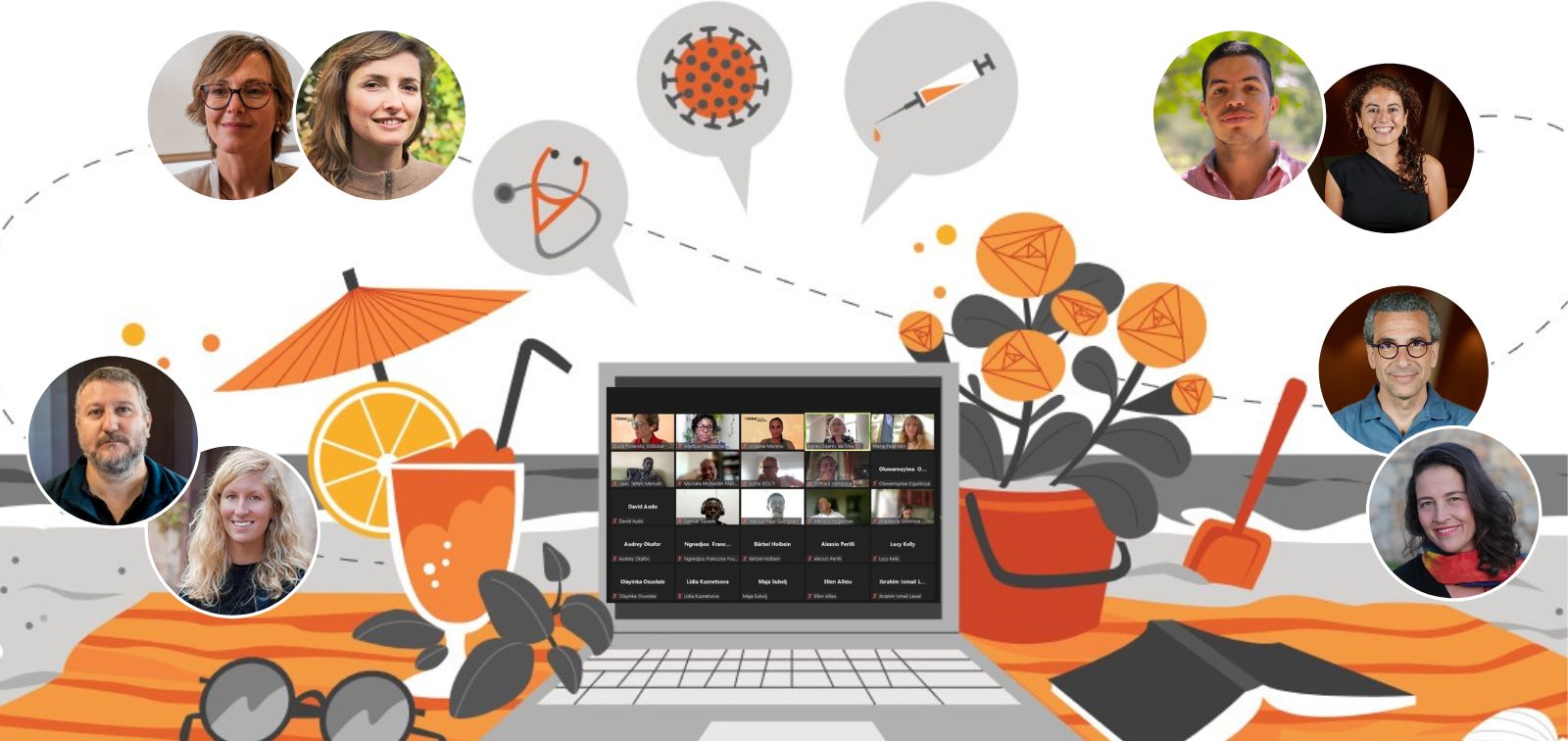More than 600 people from low- and middle-income countries participate in the International Summer School in Global Health
The programme consolidates its position with double the number of participants from the previous year
29.09.2022
The International Summer School in Global Health held its second edition with 650 students, doubling last year’s participation. The success of the event was also reflected in the number of countries from which these participants intervened: 65, the vast majority (93%) being low- and middle-income countries (LMIC).
The training programme, held online over one week (September 5-9), was organised within the framework of the Severo Ochoa accreditation, which made it possible for 98% of the students to follow the summer school free of charge.
"For a medical doctor from a low-income country like Burundi," explains Wilfried Irambona, "to participate in the school has been a big opportunity. Meeting international lecturers in public health, environmental health, infectious diseases, etc., is an additional motivation," he continues, "and I am sure they will serve as role models for my future career”.
Adetoun Mustapha, from the Nigerian Institute of Medical Research and speaker in the final debate of the course, agrees that "the school is equipping LMIC researchers with skills necessary to compete favourably in the global health research world".
The programme consisted of five modules offered over three different time slots, so that each student was able to attend three of them. Together, they provided an in-depth look at cross-cutting methods for global health, such as health impact assessments, biomedical data science and the exposome. In addition, the course addressed key challenges in global health such as climate change (through a planetary health approach) and the disruptive impact of infectious diseases on society.
A pleasant and practical course
The participants have evaluated the course very satisfactorily. "I would highlight the enriching experience of the diversity of students who attended the course," says Maryoli Veloso Fraigola, "as well as the excellent quality of the teaching staff, and that despite the high number of online participants, they have managed to make a pleasant and enjoyable course. We have even been able to participate in the experience of a practical session to apply basic techniques used in the interpretation and analysis of biomedical data".
In addition to the modules, two keynote lectures and a final debate were proposed to the students. Karim Lekadir, director of the Artificial Intelligence in Medicine Lab at the University of Barcelona (BCN-AIM) spoke about Inclusive Artificial Intelligence for Accessible Healthcare in Low-Resource Settings. Martine Vrijheid, head of the Childhood and Environment Programme of ISGlobal, gave a talk entitled "Environmental Pollutants and Early Life Health: from Single Exposures to the Exposome". The final debate, on how to be successful with grant submissions and how to manage the first individual grant, featured Marie Pedersen, associate professor at the University of Copenhagen; Adetoun Mustapha, adjunct research fellow at the Nigerian Institute of Medical Research; and Agnes Soares da Silva, former regional advisor for Environmental Epidemiology at the Pan American Health Organization.
"The very last session on grants was a memorable one," says Anastasiia Sokolova. "Sharing not only knowledge but also experience is priceless”.



